
Table of Contents
Medical weight loss is a program that is based on medical science, done under the supervision and guidance of a medical doctor. This is achieved through a thorough medical evaluation, diet and lifestyle modifications, plus medications personalized to suit your state of health and unique situation as an individual.
Through evaluation, the reason for your weight gain is understood and any underlying medical condition that influences your weight is brought to the fore. Modifications to your diet and lifestyle are then considered.
Some foods may have to be avoided or eaten in greater moderation than before while a whole lot of other types that’ll help you lose weight are suggested. An increase in your level of physical activity through exercises will be recommended to boost the number of calories you burn daily.
Your body mass index has to be about 30kg per square meter for drugs to be considered. These drugs are known to result in extra weight loss of up to 7% beyond what is achievable by diet and exercise alone.
There are 3 basic key steps in a medical weight loss program:
- Consultation or evaluation.
- Lifestyle and diet modifications.
- Medications.
The last point, medications, is not always necessary. Its use is influenced by factors that make weight loss difficult such as:
- The presence of strong hereditary factors for obesity,
- Underlying medical conditions that encourage weight gain, and
- Current body mass index at the time of the evaluation.
Major drug interventions that may be prescribed to aid your weight loss efforts are either taken as pills or injectables. They are:
- Orlistat (Xenical),
- Liraglutide (Saxenda),
- Bupropion-naltrexone (Contrave),
- Phentermine-topiramate (Qsymia),
- Semaglutide (Wegovy),
- Setmelanotide (Imcivree),
- Phentermine (Adipex-p, or Loraima).
The above is a list of the drugs and their common brand names. Of these, research has shown Orlistat and Liraglutide to be the safest and most effective according to the UK National Health Insurance Scheme (NHS).
Medical weight loss control pills.
Most of the drugs prescribed in a medical weight loss program are oral pills. These include:
- Orlistat,
- Bupropion-naltrexone,
- Phentermine,
- Phentermine-topiramate,
- Semaglutide Oral.
Semaglutide comes in both oral tablets and injectable formulations given subcutaneously( under the skin).
Do keep in touch by signing up for our newsletter:
1. Orlistat (Xenical): This is a prescription drug that works quite differently from other medical weight loss medications. It acts by reducing the fats your body could absorb from your food intake by as much as 1/3rd. Consequently, it temporarily inhibits your body’s ability to absorb fat-soluble vitamins like Vitamins A, D, E, and K which comes as a side effect.
To avoid the adverse effects of deficiency of these vitamins, you may want to take multivitamin supplements 2 hours before or after ingestion of orlistat.
It’s worth mentioning there is a formulation of Orlistat that can be obtained over the counter without a prescription but is overseen by a pharmacist. This is called Alli which is about half the dose of the prescription type.
Be informed that orlistat is not recommended for use by pregnant and breastfeeding mothers.
2. Bupropion-naltrexone: As the name suggests, it consists of two active ingredients, Bupropion and Naltrexone, each with a distinct effect on the body.
- Bupropion: It’s a drug used to help smokers quit the habit or for the treatment of depression, and seasonal disorders.
- Naltrexone: This is used in the treatment of addiction to opioids and alcohol.
3. Phentermine: This works to reduce your appetite for food and falls in a group of medications called sympathomimetic drugs. The sympathetic nervous system is responsible for your reactions to circumstances exhibited in the feeling of fight or flight. The system is stimulated by certain hormones that are secreted when the occasion arises.
Sympathomimetic drugs are those that affect your sympathetic nervous system just about the same way these hormones do and phentermine is one of them. With your appetite suppressed by it, you tend to eat much less. This results in reduced calorie intake that helps you lose weight.
4. Phentermine-topiramate: Qsymia is the brand name for this pill. In it, phentermine’s weight loss effect is boosted by the addition of another drug called topiramate. The latter is primarily used as an anticonvulsant that works by reducing abnormal excitement in your brain but could also help you lose weight in several ways such as:
- Makes you feel less hungry,
- Makes your food not as tasty as it is,
- Makes you burn more calories than usual.
Ordinarily, using topiramate against convulsion or the prevention of migraines is known to lead to weight loss in the general population and obese patients with type 2 diabetes as contained in the National Library of Medicine (NLM).1
5. Semaglutide: Presently, it’s the only weight loss drug that’s available in oral and injectable formulations. It was recently approved for the treatment of chronic obesity by the Food and Drug Administration. It has also been approved for use in the UK by the National Institute for Health and Care Excellence. The injection could be given under the skin (subcutaneously) about once weekly.
The drug works by imitating the effect of a natural hormone called a glucagon-like peptide (GLP-1) and targets receptors in your brain that are responsible for food consumption and appetite.
Semaglutide is recommended for use on adults who have a BMI of 27kg/square meters plus weight-related medical condition(s) like type 2 diabetes, high cholesterol values, and high blood pressure according to the Food and Drug Administration (FDA). However, the National Institute for Health (NIH) and Care Excellence in the UK doesn’t recommend its use for people with a BMI that’s less than 30kg/square meter.
Patients who may not have a weight-related medical condition but are struggling with chronic obesity and with a body mass index that’s not less than 30kg/square meters are among those for which it is recommended in the US.
Medical weight loss injections.
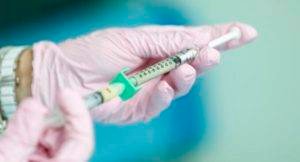
1. Liraglutide: It is a higher dose formulation of Victoza, a type 2 diabetic drug, and works by imitating the action of a hormone that informs your brain when your stomach is full. This reduces your affinity for food by making you feel much less hungry.
2. Setmelanotide: The injectable is used in the treatment of obesity in kids (from 6 years) and adults whose condition is a result of certain genetic mutations.2 It was approved in the US back in 2020 and a year later in the EU in 2021.
3. Semaglutide: This has already been discussed earlier in this article under medical weight loss pills since it’s formulated in oral pills and injectables. If recommended, it’s a drug you may have to take for life as a withdrawal could make you regain the weight.
Medical weight loss diet.
The single most important aspect of any weight loss program is sustainable changes to your lifestyle. This has everything to do with eating less food and getting more active. A medical weight loss program still runs on these principles and below are some of what to eat or avoid for success and sustainability.
Foods to eat for medical weight loss.
Beans and legumes: They are rich in proteins and fiber both of which help you achieve satiety and keep you feeling full for a long time without adding so many calories to your diet. You also tend to eat less with the satisfaction you get. Examples of these are pinto beans and peanuts. Peanuts are commonly taken as equally nutritious peanut butter.
Whole grains: They may have significant amounts of calories typical of grain diets but differ from processed grains by retaining their bran and germ. Whole grains have been found to have the added benefit of reducing your risk of type 2 diabetes according to the National Library of Medicine (NLM) which is associated with obesity.3
Furthermore, unlike processed grains that contain only the endosperm, the presence of the bran in whole grains will reduce the amount of food you will need to take to achieve satiety. This means taking fewer calories.
Vegetables and fruits: They help you lose weight following the same principle of high fiber content. Their rich fiber content helps you achieve satiety before you’ve consumed a whole lot of calories in addition to the fact they can also be low in carbs like Avocados. You also tend to eat less as they keep you feeling full much longer.
Research has shown that people who consume fruits and vegetables generally weigh less than those who don’t.4
Nuts: It is been argued that nuts, as energy-dense foods, make people gain weight. However, this doesn’t apply when they are consumed as part of diet plans. Quite on the contrary, the research contained in the British Journal of Nutrition (BJN)5 and Asia Pacific Journal of Clinical Nutrition (APJCN)6 has shown nuts help in weight loss or weight maintenance plans.
Lean protein: A study has found proteins are generally ideal in a weight loss diet plan through protein-induced satiety.7 Lean proteins are specifically suitable for this and give you a healthier option. Poultry and fish are good examples. These contain less saturated fats, unlike red meats like beef or pork.

4 kinds of food to avoid in a medical weight loss program.
- Trans fats: Apart from the increased risk of heart diseases and other ailments, transfats have been found to result in abdominal obesity, even without high caloric intake. (source)8
- Processed grains: With these, you do have to eat more to achieve satiety as they contain less fiber. This also means taking in much more calories in comparison to whole grains.
- Processed meats: processed meat is known to be a risk factor for diabetes and by extension diabetes-induced weight gain according to the Annals of Nutrition and Metabolism (ANM).
- Refined or added sugars: Research has shown that added sugars play a major role in obesity, not only in adults but in infants too. (source1,9 source2, source,10)
Medical weight loss programs.
Medical weight loss programs can be as much as the health facilities around you. Some are more popular than others not necessarily out of better performance but out of reputation and a name built over time. Below are some of the 3 most popular ones.
Valley medical weight loss.
The Valley weight loss program has been running since 2010. That’s over a decade of service to date. They offer weekly consultations with a physician, guidelines on weight loss, medications including B12 injections, and supplements. There is also a water pill to be given when prescribed by your physician.
It is one of the cheapest and most affordable medical weight loss programs you can embark on with its most subscribed program costing about $31.95 weekly.
Rivas medical weight loss.
Rivas’s medical weight loss program has been operating for the past 25 years and is believed to have met the needs of over 100,000 patients. With most insurance companies skipping the coverage of medical weight loss, they don’t process insurance but could issue invoices to those with insurance coverage for reimbursements.
On pricing, there is a $195 risk-free charge on your first visit. You won’t pay anything if, after the consultation, you decide the program isn’t for you. If placed on their Phentermine pill, you’ll start by going every 2 weeks at a charge of $85 per visit after which you can continue every 4 weeks for $110 per visit.
Their semaglutide injection starts at a weekly dose of $110 each. Later you can switch to a 4-weekly plan at the cost of $440 for each visit.
Alevia medical weight loss.
Alevia medical weight loss program is run by a team of doctors, dieticians, and exercise physiologists who do pretty much the same thing as other programs but with a unique appointment structure and a medicare rebate.
Different fees apply on appointments received within office hours and after hours. Concerning this, you’ll pay an out-of-pocket fee of $181.70 for the initial consultation within office hours but $191.70 after hours. Their after-hours start after 6 p.m. on weekdays and Saturdays.
However, the Medicare rebate plan for initial consultation within office hours and after hours remains unchanged at $113.30.
There are also body composition scans for which the out-of-pocket fees stand at $68.25 within office hours but at $78.25 after hours (keeping to an extra $10 charge for after hours). The Medicare rebate for the body composition scan is $39.75 for services rendered either within office hours or after hours.
Apart from the initial consultation, other appointment types include Long-consultation and Standard consultation. Any appointment cancellations or rescheduling, done with less than a business day’s notice, attract a late notice fee of $50 for a standard consultation, $100 for a long consultation, and the full fee for an initial consultation.
There is a focus, not only on lifestyle changes, on preventing you from regaining lost weight over time. This is done through sustainable eating habits with the help of tools they offer to make you feel full and achieve satiety with less food intake.
Side effects of medical weight loss drugs.
We cannot talk about medical weight loss without highlighting the side effects of the medications doctors employ to help you lose weight. Below is a table of some drugs commonly used in medical weight loss programs and their side effects.
| Drug. | Side effects. |
|---|---|
| Liraglutide. | Nausea, vomiting, diarrhea, low BP, increased heart rate, runny nose, cough, constipation, dizziness, difficulty breathing, difficulty swallowing, kidney problems, mouth swelling, ich, tongue swelling, rash, mood swings, suicidal tendencies, throat swelling, and depression. (Source: MedlinePlus) |
| Setmelanotide. | Stomach ache, rash, diarrhea, darkening of the skin, fatigue, loss of hair, vomiting, constipation, muscle spasms, fever, insomnia, dry skin, dry mouth, limb and joint pain, unexplained penile erections, and increased libido in women. (Source: MedlinePlus) |
| Semaglutide. | Nausea, vomiting, constipation, diarrhea, headache, stomach pain, dyspepsia, dizziness, belching, stomach distension, recurrent fever, heartburn, vision changes, tachycardia, reduced urination, swelling of legs, itch, and rash. (Source: MedlinePlus) |
| B12 injection. | Nausea, vomiting, headache, dizziness, reactions like pain, itchiness or swelling at the injection site, diarrhea, hot flushes, and irregular heartbeat or palpitations. (Source: NHS) |
| Orlistat. | Fecal spotting, stomach pain, diarrhea, oily stools, acute kidney injury (rarely), inhibition in the absorption of fat-soluble vitamins, subacute liver failure, and cholestatic hepatitis. (Source: National Library of Medicine)11 |
| Bupropion-naltrexone | Tinnitus(ringing in the ears), changes in the sense of taste, dizziness, nausea, vomiting, constipation, headache, flushing, seizures, hives, blisters, rash, shortness of breath, painful sores, chest pain, muscle pain, yellowing of eyes, dark colored urine, joint pain, etc. (Source: MedlinePlus) |
| Phentermine. | Hair loss, muscle tightening, painful menses, heartburn, dizziness, severe tiredness, headache, numbness in the hands, dry mouth, burning sensation in the hands, diarrhea, lack of attention, muscle pain, forgetfulness, and back and limb pain. (Source: MedlinePlus) |
| Phentermine-topiramate. | Hair loss, muscle tightening, painful menses, heartburn, dizziness, severe tiredness, headache, numbness in the hands, dry mouth, burning sensation in the hands, diarrhea, lack of attention, muscle pain, forgetfulness, and back and limb pain. (Source: MedlinePlus) |
Final words.
Being overweight puts you at risk of a whole lot of health problems like heart disease, diabetes, cancer, stroke, etc. It has been said obesity can reduce your lifespan by as much as 14 years. This makes staying physically fit and within the right body weight significantly important.
Calorie intake and level of physical activity are two strong determinants of body weight. Reducing the number of calories consumed daily and increasing activities will usually lead to weight maintenance or loss.
This simple process will work for most people but not for a few who may have underlying conditions that are responsible for their weight gain. This is where medical weight loss programs become important otherwise anyone can safely lose weight and maintain it through lifestyle changes and discipline, without drugs.
I won’t advise anyone to embark on the use of medications except where necessary. This is why I had to highlight some of the known side effects of these drugs to enable you to decide if it’s worth the risk when you can still achieve your weight loss goals without them.
Some time ago I used to have a BMI above 30kg per square meter but today it’s about 23kg per square meter. I achieved this chiefly through dieting and lifestyle modifications. I cut down on carbs and substituted the reduction with high-fiber and low-calorie foods and veggies.
In the process, I’ve come to fall in love with cucumbers and garden eggs(eggplants) which I usually enjoy with roasted peanuts to the point I can hardly go a day without them. You may never know what you are missing till you make some dietary changes.
There are days I take hard-boiled eggs (a superfood) along with cucumber and peanut butter for dinner. This could also help with the prevention or management of type 2 diabetes. However, if you are taking antidiabetic medications, you need to be careful with this combination to avoid hypoglycemia.
I wish you success in your weight loss journey and awesome physical fitness. You may also be interested in weight loss with levothyroxine or weight loss on Adderall.
References.
- Moradi S, Kerman SR, Mollabashi M. The effect of topiramate on weight loss in patients with type 2 diabetes. J Res Med Sci. 2013 Apr;18(4):297-302. PMID: 24124426; PMCID: PMC3793374. ↩︎
- Setmelanotide. (2024, March 3). In Wikipedia. https://en.wikipedia.org/wiki/Setmelanotide ↩︎
- Aune D, Norat T, Romundstad P, Vatten LJ. Whole grain and refined grain consumption and the risk of type 2 diabetes: a systematic review and dose-response meta-analysis of cohort studies. Eur J Epidemiol. 2013 Nov;28(11):845-58. doi: 10.1007/s10654-013-9852-5. Epub 2013 Oct 25. PMID: 24158434. ↩︎
- Bertoia ML, Mukamal KJ, Cahill LE, Hou T, Ludwig DS, Mozaffarian D, Willett WC, Hu FB, Rimm EB. Changes in Intake of Fruits and Vegetables and Weight Change in United States Men and Women Followed for Up to 24 Years: Analysis from Three Prospective Cohort Studies. PLoS Med. 2015 Sep 22;12(9):e1001878. doi: 10.1371/journal.pmed.1001878. Erratum in: PLoS Med. 2016 Jan;13(1):e1001956. PMID: 26394033; PMCID: PMC4578962. ↩︎
- Rajaram S, Sabaté J. Nuts, body weight and insulin resistance. British Journal of Nutrition. 2006;96(S2):S79-S86. doi:10.1017/BJN20061867 ↩︎
- Mattes, R. D., & Dreher, M. L. (2010). Nuts and Healthy Body Weight Maintenance Mechanisms. Asia Pacific Journal of Clinical Nutrition, 19(1), 137–141. https://search.informit.org/doi/10.3316/informit.971268927143427 ↩︎
- Veldhorst, M., Smeets, A., Soenen, S., Hochstenbach-Waelen, A., Hursel, R., Diepvens, K., Lejeune, M., Luscombe-Marsh, N., & Westerterp-Plantenga, M. (2008). Protein-induced satiety: Effects and mechanisms of different proteins. Physiology & Behavior, 94(2), 300-307. https://doi.org/10.1016/j.physbeh.2008.01.003 ↩︎
- Kavanagh, K., Jones, K. L., Sawyer, J., Kelley, K., Carr, J. J., Wagner, J. D., & Rudel, L. L. (2007). Trans Fat Diet Induces Abdominal Obesity and Changes in Insulin Sensitivity in Monkeys. Obesity, 15(7), 1675-1684. https://doi.org/10.1038/oby.2007.200 ↩︎
- Adam Drewnowski, The Real Contribution of Added Sugars and Fats to Obesity, Epidemiologic Reviews, Volume 29, Issue 1, 2007, Pages 160–171, https://doi.org/10.1093/epirev/mxm011 ↩︎
- Kong, K. L., Burgess, B., Morris, K. S., Faith, M. S., & Paluch, R. A. (2021). High intake of added sugars is linked to rapid weight gain in infancy, breastfeeding ≥12 months may protect against this: A preliminary investigation. Pediatric Obesity, 16(3), e12728. https://doi.org/10.1111/ijpo.12728 ↩︎
- Filippatos TD, Derdemezis CS, Gazi IF, Nakou ES, Mikhailidis DP, Elisaf MS. Orlistat-associated adverse effects and drug interactions: a critical review. Drug Saf. 2008;31(1):53-65. doi: 10.2165/00002018-200831010-00005. PMID: 18095746. ↩︎




























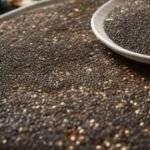

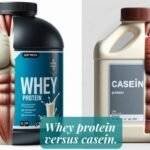











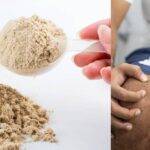












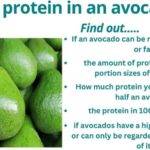






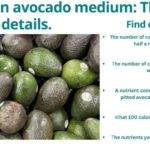
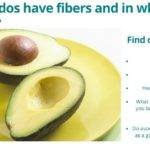
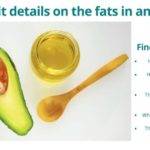






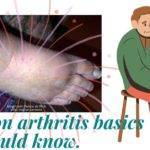



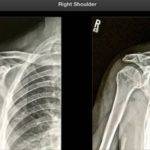



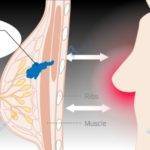
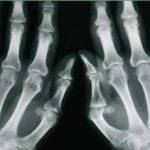
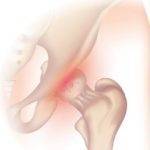









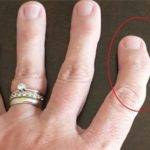
















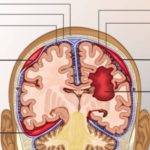
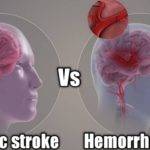
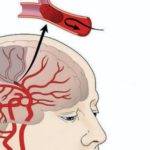


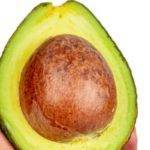











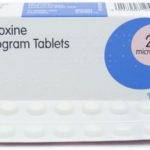


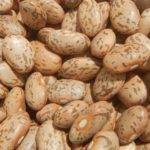
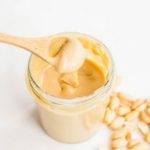
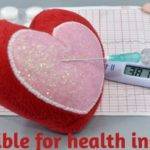







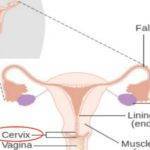

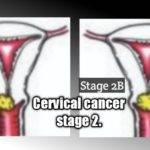
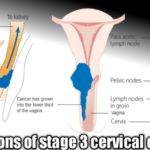
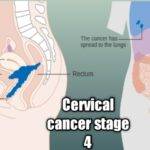
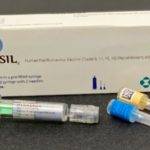


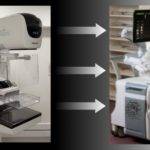




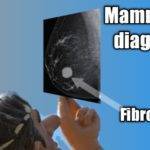
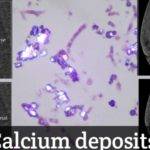


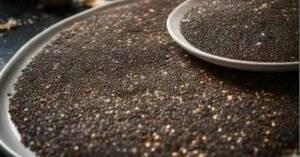

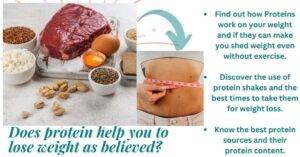

Having a weight loss program with medical assistance is something I think I can really get behind. I would want to try these for myself, but I’m afraid of overdoing things or using the wrong methods and causing stress and side effects to my body. To make sure I get the right things done, I’ll consult a medical weight loss clinic and have them write me some instructions and tips on maintaining that program.
Way to go. Please do.
Great post. I am facing a couple of these problems.
You seem to know so much about this. An excellent article. A fantastic read. I’ll certainly be back.
I’m still learning from you, while trying to reach my goals. I absolutely love reading all that is written on your website. Keep the posts coming. I love it!
Thank you for sharing excellent information. Your web site is so cool. I’m impressed by the info you have on this article. It shows how well you know this subject. Bookmarked this website page, will come back for extra articles. You, my pal, ROCK! I found just the information I already searched all over the place and simply couldn’t come across. What a perfect web site.
Very well written article. It should be helpful to anybody who applies the details, including me. Keep up the good work – looking forward for more posts.
F*ckin awesome write up here. I’m very happy to read through your article. Thanks so much and i’m looking forward for more from you. Could you kindly drop me an e-mail?
WONDERFUL Post. Thanks for sharing. i’ll be expecting more awesome posts.
Wow, amazing blog layout! How long have you been blogging? you made blogging look easy. The overall look of your site is fantastic, let alone the content!
This was incredibly insightful! I appreciate your clear explanations.
It is actually a great and useful piece of article. I am glad that you just shared this useful information with us. Please keep us up to date like this. Thank you for sharing.
Thank you for sharing superb informations. Your site is very cool. I’m impressed by the details that you have on this website. It reveals how nicely you perceive this subject. Bookmarked this website page, will come back for extra articles. You, my pal, ROCK! What a great web site.
You made several nice points there. I did a search on the subject and found mainly persons will agree with your blog.
I like the helpful information you provide in your articles. I’ll bookmark your weblog and take a look at it more regularly. I’m certain I’ll learn a lot of new stuff right here! Best of luck on the next publication!
I am happy that I found this website, precisely the right info that I was searching for! .
hi!,I love your writing very much.
I am very glad to read through your post. Thank you so much. Will you please drop me an e-mail?